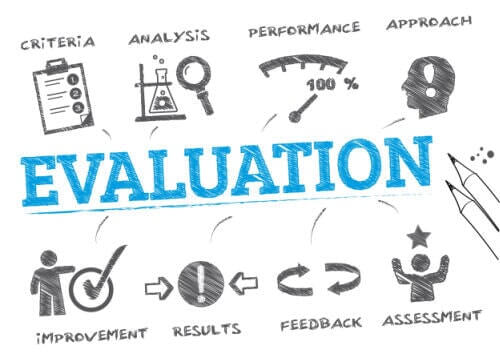
Law Firm Leadership Evaluation Criteria
The benefits of leaders voluntarily initiating their own performance evaluation can be enormous. There is an empirical correlation between the strength of a leader and their willingness to ask for candid feedback. By way of just one example, according to Joe Folkman, author of The Power of Feedback, “Top-ranked leaders (those who average a score at the 83rd percentile on leadership effectiveness) are also at the top in asking for feedback.
The role of a law firm leader can however be a lonely one as often colleagues are reluctant to provide feedback or offer constructive critique for fear of repercussions.
With the above in mind, we have summarised Patrick J. Mckenna’s 41 non-all-inclusive leadership evaluation criteria below. This summary can serve as a guide for self-assessment and evaluation of a law firm’s leader. Aspiring law firm leaders can also leverage this information to refine their own leadership playbook.
Law firm leader evaluation criteria
- Does the Firm Leader (FL) communicate to the partners regularly (at least monthly), and in a meaningful way about what he/she is doing and what is going on within the firm?
- How well has the FL functioned as the firm’s strategic thinker? For example, does the FL devote adequate time and proper attention to thinking about where the firm should be going, what practices should be abandoned or further developed, and what new markets should be entered?
- Has the FL ensured that the firm has developed a written strategic plan, a clear set of firm goals that are revisited and monitored regularly, and a well-articulated plan for growth?
- Has the FL been successful at achieving a healthy blend of long-term thinking versus short-term results?
- Does the firm have a written human resources (career and competency development) plan that integrates with the firm’s strategic plan? (Per great strategist Jim Collins, you must get the right people on the bus, the wrong ones off, and everyone in the right seat.)
- Does the FL regularly monitor external trends and changes occurring in the profession, participate in relevant associations and practice management conferences, and bring new ideas to the firm?
- How effective has the FL been in selling his/her new ideas to the other partners?
- How effective has the FL been at building consensus among the partners, where needed?
- Is the FL effective at managing the implementation of the firm’s strategic plan? Have written action plans been created, with deadlines and responsibilities assigned?
- How good is the FL at getting things accomplished?
- Has the FL made a meaningful contribution to improving the firm’s profitability?
- Has the FL helped established procedures for achieving partner accountability?
- Are the partners in the firm truly held accountable for their conduct and performance?
- Does the firm operate with a team feeling, where partners collaborate, bring others in on their clients, help each other out even if there is no immediate compensation for it, cross-sell each other, foster a feeling of “team” rather than a group of solos practising under one roof?
- Has the FL contributed to the development and strengthening of effective practice and industry groups (also formal client teams)?
- Do practice/industry group leaders meet with the FL on any regular basis to work on particular challenges, share their successes and learn from each other?
- Does the FL require all practice/industry groups to develop their own strategic plans?
- Does he/she hold the groups accountable and to reporting, at least quarterly, on their progress to achieving their game plans?
- Has the FL developed an effective style, methodology, and regular discipline of coaching those practice/industry/office leaders that report to him/her to help them develop and succeed?
- Does the FL address and resolve partner conflicts and partner behaviour or performance problems swiftly and effectively?
- Has the FL’s involvement in the partner compensation systems been effective?
- Do a strong majority of partners feel the system for allocating income is reasonable and fair?
- Does the FL make decisions promptly and effectively? Is the FL a good problem solver?
- Do the partners feel that the FL is accessible, listens, and is interested in what they are saying?
- Does the FL encourage partners, and all firm personnel, to express their opinions and encourage them to speak truth to power?
- Has the FL made specific and measurable contributions to making the firm a great place to work where retention is high, training effective, recruiting successful, and morale outstanding?
- Does the FL take action to ensure that the firm’s culture is consistent among offices and that there is no apparent favouring of one group over another?
- How effective has the FL been at identifying lateral candidates, validating their credentials and bringing individual stars and promising groups into the firm?
- Is the firm active in business development and has the firm been successful at meeting its goals for growth?
- Has the firm established a strong marketing culture and has the FL played an important role in making that happen or reinforcing successes?
- Has the FL assembled and empowered a strong internal management team (could include COO, CMO, CFO, etc.) that performs well and to which the FL delegates day-to-day management duties?
- Are the basic, routine matters of the firm handled efficiently and timely (WIP billed, write-offs challenged, receivables collected, timesheets in on time, issuance of internal financials, admin staff providing quality support to client service personnel, preparing and monitoring of budgets, etc)?
- How well does the FL keep the bar high on issues of work quality, client service quality and standards, integrity and ethics?
- Does the FL meet regularly with the firm’s key clients and report to the partnership on the learnings and outcomes of those meetings?
- Is the FL visible in the community and is the firm represented well?
- Does the FL help the firm maintain a strong public image?
- Does the FL’s conduct always take the firm’s perspective as opposed to his/her own or that of a particular group of partners?
- Does the FL set an example and serve as a good role model to partners and staff in the firm for conveying personal respect, being accessible, following the rules, etc.?
- What do you consider to be the three main strengths that this FL brings to their work?
- What do you consider to be the three main areas to develop in order for our FL to be even better in their role?
- In what specific ways could our FL work better with you, which you may not have already mentioned?
Follow the link for Patrick J. McKenna’s full article Should firm leaders take the lead on their own performance review?

Patrick J. McKenna, an internationally recognized author, lecturer, strategist, and seasoned advisor to the leaders of premier law firms.
Also read top viewed Ai Legal article: The Role of AI in Legal Research.






